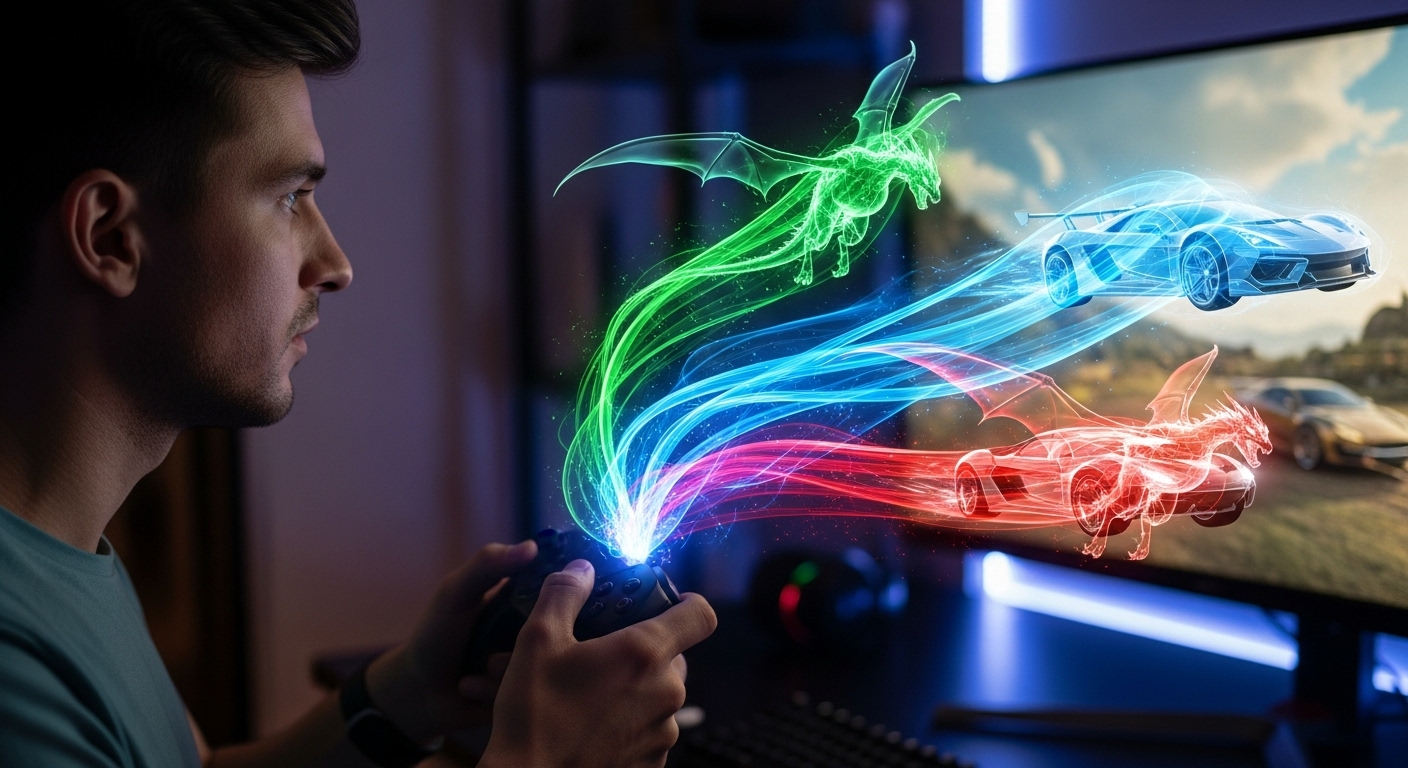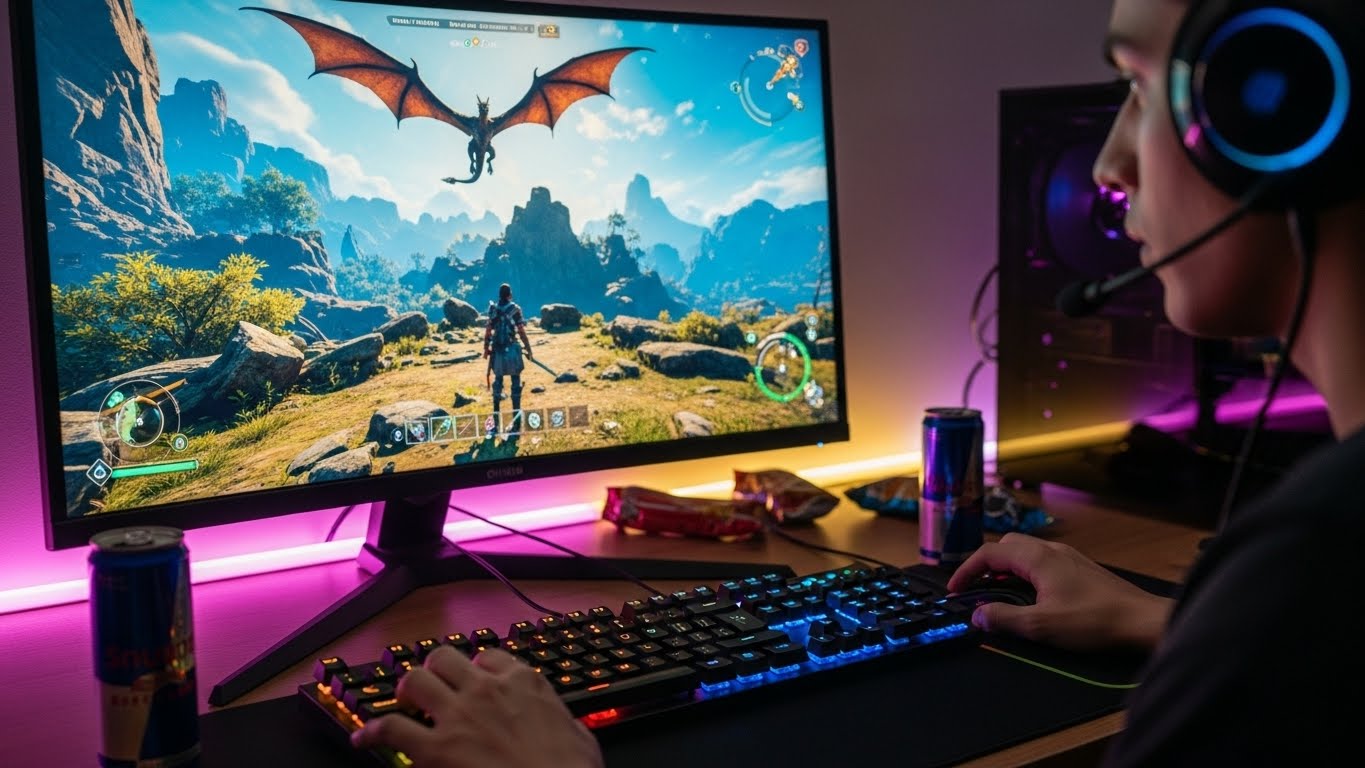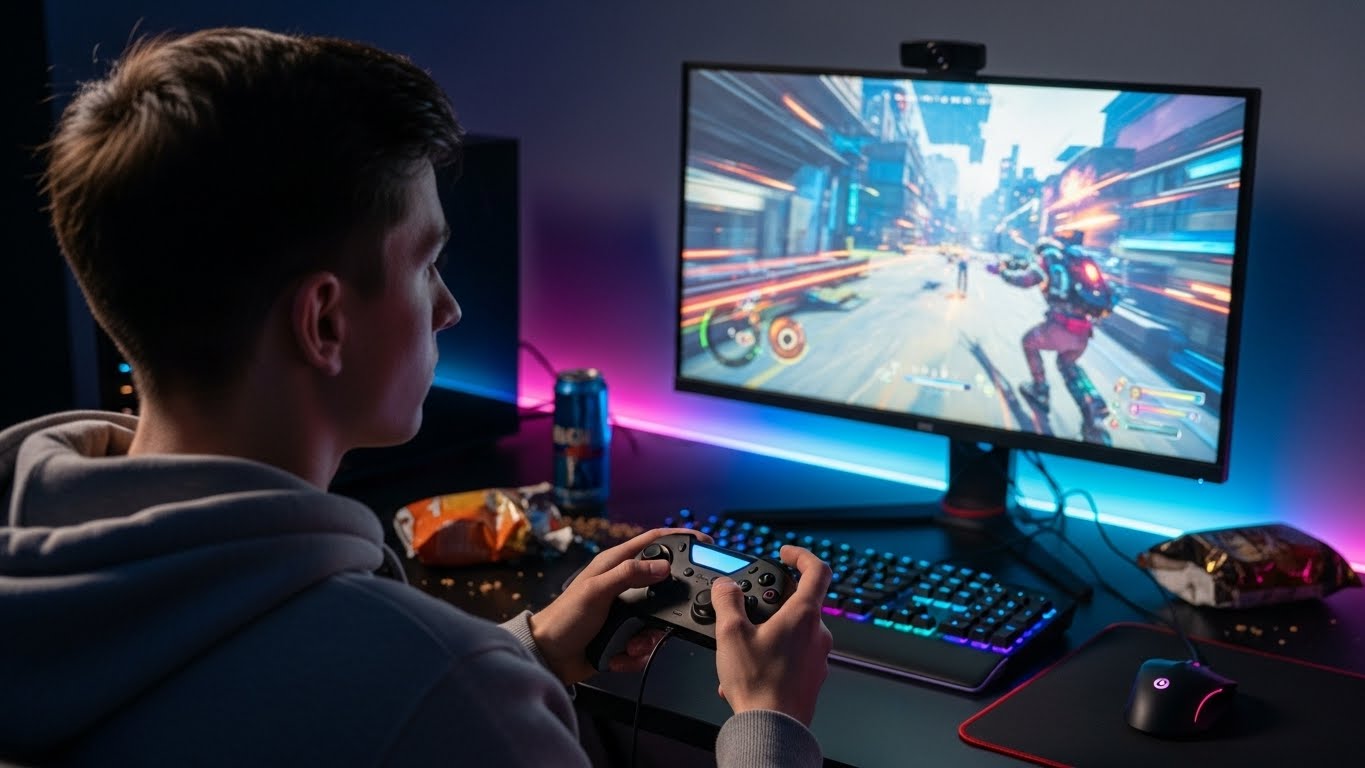Gaming has come a long way from its humble beginnings as simple pixelated entertainment to the fully immersive experiences we enjoy today. It is no longer just a pastime; gaming has become a cultural phenomenon that spans generations, geographies, and demographics. From casual mobile games to competitive eSports, the gaming industry has cemented itself as one of the most influential forms of modern entertainment.
The Origins of Gaming
The history of gaming is as fascinating as the games themselves. It all began in the early 1950s with rudimentary experiments in computer science. Games like Tennis for Two and Spacewar! were among the first interactive experiences for players, laying the groundwork for the entire industry. These early games were simple in design but revolutionary in concept, demonstrating that computers could be used for entertainment beyond calculations and data processing.
During the 1970s, the gaming industry began to take a commercial shape with the advent of arcade games. Titles like Pong, Pac-Man, and Space Invaders not only captured the imagination of players but also introduced the concept of scoring, competition, and replayability. Arcades became social hubs where people of all ages gathered to compete, collaborate, and experience the thrill of gaming in a public space. This era marked the birth of gaming culture, characterized by excitement, innovation, and community.
The Rise of Home Consoles
The 1980s brought gaming into the home. With the launch of consoles like the Nintendo Entertainment System (NES) and Sega Master System, players no longer had to leave their living rooms to enjoy video games. These home consoles introduced iconic franchises such as Super Mario Bros., The Legend of Zelda, and Sonic the Hedgehog. These games became cultural touchstones, shaping the childhoods of millions and establishing long-lasting franchises that remain popular today.
Home consoles also enabled more complex storytelling and immersive gameplay. Unlike arcade games that were designed for short bursts of play, console games encouraged longer engagement, exploration, and problem-solving. Players could now invest time in characters, worlds, and narratives in ways that were previously impossible, setting the stage for the next evolution in gaming.
The Impact of Personal Computers
While consoles brought gaming into homes, personal computers expanded the horizons of what was possible in gaming. PCs allowed for more powerful graphics, modifiable content, and multiplayer experiences through local networks and the internet. Titles like Doom, Warcraft, and The Sims showcased the versatility of PC gaming, offering players both creative freedom and competitive challenge.
PC gaming also facilitated the rise of online communities. Players could now connect across the globe, forming guilds, clans, and networks of friends who shared a passion for gaming. This connectivity laid the groundwork for modern eSports and online multiplayer games, which would become central to the industry in the decades to follow.
The Evolution of Game Design
Game design has evolved dramatically over the years. Early games were primarily focused on mechanics and challenge. Players engaged with simple objectives, such as reaching a high score or defeating enemies. However, as technology advanced, developers began experimenting with narrative, world-building, and emotional engagement.
Modern game design emphasizes storytelling as much as gameplay. Games like The Last of Us, Red Dead Redemption 2, and The Witcher 3 are celebrated for their rich narratives, complex characters, and immersive worlds. Players are no longer passive participants; they actively shape the story through choices, actions, and interactions. This level of depth transforms gaming into a form of interactive storytelling that rivals films and literature in its emotional impact.
The Rise of Mobile Gaming
The 21st century introduced a new dimension to gaming: mobile platforms. Smartphones and tablets have made gaming accessible to millions of people who may not own consoles or gaming PCs. Titles like Candy Crush, Clash of Clans, and PUBG Mobile have reached a global audience, often appealing to casual gamers who play in short bursts during daily routines.
Mobile gaming has also democratized the industry. Independent developers can now create games with minimal resources, distribute them through app stores, and reach millions of players worldwide. This accessibility has led to a surge of creativity and innovation, with mobile games exploring genres, mechanics, and experiences that were previously considered niche or experimental.
eSports: Competitive Gaming at a Global Scale
One of the most significant developments in modern gaming is the rise of eSports. Competitive gaming has evolved into a professional industry, with tournaments, sponsorships, and international recognition. Games like League of Legends, Dota 2, Counter-Strike: Global Offensive, and Fortnite have become eSports staples, drawing millions of viewers online and filling arenas with cheering fans.
eSports has changed the perception of gaming from a hobby to a legitimate career. Professional gamers train rigorously, often dedicating 8 to 12 hours a day to practice, strategy, and teamwork. Coaches, analysts, and managers support teams, creating an ecosystem similar to traditional sports. This professionalization of gaming has also opened doors for commentary, broadcasting, and content creation, expanding the industry even further.
Virtual Reality and Immersive Experiences
Virtual reality (VR) and augmented reality (AR) have pushed the boundaries of gaming into entirely new dimensions. VR headsets provide fully immersive experiences, allowing players to interact with digital worlds in three dimensions. Games like Beat Saber, Half-Life: Alyx, and Resident Evil 7: Biohazard showcase the potential of VR to create physically engaging, emotionally impactful experiences.
AR games, such as Pokémon Go, blend the digital and physical worlds, encouraging players to explore their environment while interacting with virtual elements. These technologies demonstrate that gaming is not confined to screens—it can be integrated into daily life, social interactions, and even physical fitness.
Gaming as a Social Platform
Modern gaming has transcended traditional entertainment to become a social platform. Games now serve as spaces for social interaction, collaboration, and community building. Multiplayer online games allow friends and strangers to team up, communicate, and achieve goals together. Platforms like Discord, Twitch, and YouTube Gaming have further amplified this social dimension, enabling players to share experiences, stream gameplay, and build communities around shared interests.
This social aspect has made gaming an important cultural phenomenon. People of all ages, backgrounds, and locations can connect through games, fostering friendships and communities that might not exist otherwise. In many ways, gaming has become a language of its own—a medium through which people communicate, collaborate, and express themselves.
The Economic Impact of Gaming
The gaming industry is a major economic force, generating billions of dollars annually. This growth is fueled not only by game sales but also by in-game purchases, subscriptions, merchandising, and live events. The rise of digital distribution platforms, such as Steam and the PlayStation Store, has made it easier for developers to reach global audiences and monetize their creations.
The economic impact of gaming also extends to employment and innovation. Game development requires a wide range of skills, including programming, art, design, writing, and marketing. As the industry grows, it continues to create job opportunities and drive technological innovation, particularly in graphics, AI, and interactive media.
Gaming and Mental Health
While gaming is often viewed purely as entertainment, it can also have significant effects on mental health and cognitive development. Studies have shown that gaming can improve problem-solving skills, enhance spatial awareness, and foster creativity. Multiplayer games encourage communication, teamwork, and strategic thinking, which can be valuable in real-world contexts.
However, it is important to maintain a healthy balance. Excessive gaming can lead to negative consequences such as social isolation, disrupted sleep, and reduced physical activity. Like any form of entertainment, moderation is key, and players should be mindful of how gaming fits into a balanced lifestyle.
The Future of Gaming
The future of gaming promises to be as exciting and transformative as its past. Advances in artificial intelligence, cloud gaming, and interactive storytelling are poised to redefine the way we play. AI-driven games could adapt dynamically to individual players’ preferences, creating unique experiences every time. Cloud gaming could eliminate the need for high-end hardware, allowing players to stream games seamlessly from anywhere in the world.
Moreover, the continued convergence of gaming with other forms of media—such as film, music, and social media—will expand the cultural relevance of games. We may see increasingly sophisticated narratives, shared universes, and interactive experiences that blur the line between entertainment, art, and social engagement.
Conclusion
Gaming has evolved from simple pixels on a screen to a complex, multifaceted cultural phenomenon. It has shaped the way we socialize, compete, create, and entertain ourselves. Whether through home consoles, PCs, mobile devices, or immersive VR worlds, gaming continues to push the boundaries of technology and storytelling.
As the industry grows, it will continue to innovate, inspire, and unite people around shared experiences. Gaming is no longer just a hobby—it is a window into new worlds, a medium for expression, and a testament to human creativity and imagination. The journey of gaming is far from over, and its future holds endless possibilities for players, developers, and communities alike.



